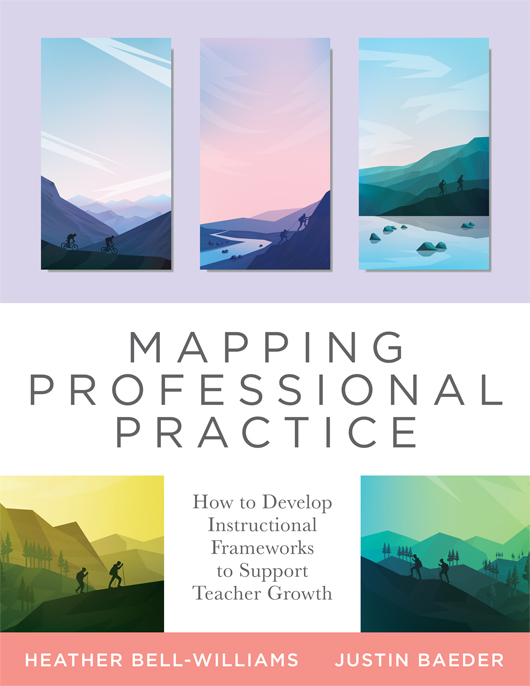Free Reproducibles
Mapping Professional Practice
How to Develop Instructional Frameworks to Support Teacher Growth
How can a common vision for professional practice help teachers grow? Instructional frameworks are a proven tool for getting educators on the same page about what matters most in specific areas of practice.
Benefits
- Identifying the most promising areas of focus
- Drafting and piloting an initial framework
- Getting input and feedback from teachers
- Articulating a vision for exemplary practice
- Building momentum and overcoming resistance to change
TABLE OF CONTENTS
Part 1: What Are Instructional Frameworks?
Chapter 1: Defining and Developing Instructional Frameworks
Chapter 2: Making Shared Expectations More Specific
Chapter 3: Examining Instructional Frameworks in Action
Part 2: How to Develop Instructional Frameworks
Chapter 4: Choosing a Focus
Chapter 5: Bounding Your Improvement Focus
Chapter 6: Identifying Key Components
Chapter 7: Articulating Levels of Fluency
Chapter 8: Getting Started and Getting Input
Part 3: Instructional Frameworks in Action
Chapter 9: Using Instructional Frameworks for Teacher Growth
Chapter 10: Considering Broader Applications for Instructional Frameworks
Chapter 11: Supporting Organization-Level Initiatives With Instructional Frameworks
Conclusion
Appendix: Reproducibles
REPRODUCIBLES
Chapter 1
Chapter 2
Chapter 3
Chapter 4
Chapter 5
Chapter 6
Chapter 7
Chapter 8
Chapter 9
Chapter 10
Chapter 11
Appendix
- Justin Baeder’s Ten Evidence-Driven Feedback Questions
- Second Draft of Instructional Framework for Behavior Management for Paraprofessionals
- Instructional Framework for High Expectations for Student Learning
- First Draft of Instructional Framework for Zones of Regulation
- Second Draft of Instructional Framework for Zones of Regulation
- Instructional Framework for Elementary Guided Mathematics
- Evidence-Driven Instructional Leadership Road Map
- Instructional Framework for Hannah’s Classroom Observations
- First Draft of Instructional Framework for Balanced Literacy
- Second Draft of Instructional Framework for Balanced Literacy
- Draft Key Components for Instructional Framework on Scaffolding Strategies for Teachers of English Learners
- First Draft of Instructional Framework for SEL Interactions for Adults
- Second Draft of Instructional Framework for SEL Interactions for Adults
- Instructional Framework for Morning Messages
- Instructional Framework for Vertical Team Meetings
- Instructional Framework for One Paraprofessional Working With One Student
- Instructional Framework for Student Independence
- First Draft of Instructional Framework for Zones of Regulation in Student-Friendly Language
- Instructional Framework for One Fifth-Grade Student (Dan) Managing and Self-Regulating at Recess
SUGGESTED RESOURCES
BOOKS
- Baeder, J. (2017). Now we’re talking! 21 days to high-performance instructional leadership. Bloomington, IN: Solution Tree Press.
- Kanold, T. (2011). The five disciplines of PLC leaders. Bloomington, IN: Solution Tree Press.
- Marzano, R. J. (2017). The new art and science of teaching (Rev. and expanded ed.). Bloomington, IN: Solution Tree Press.

